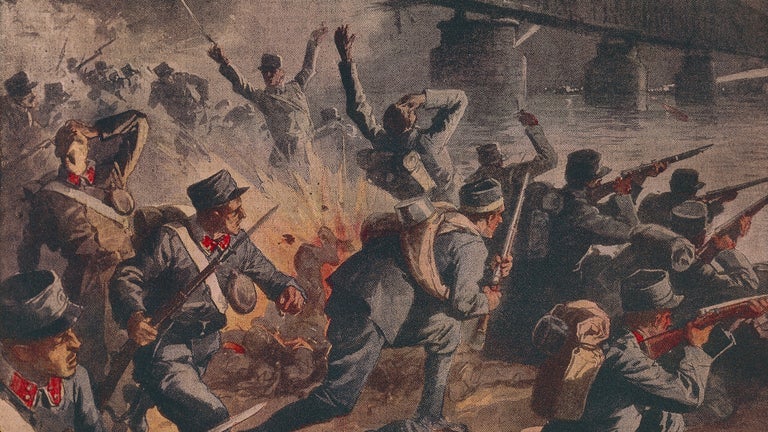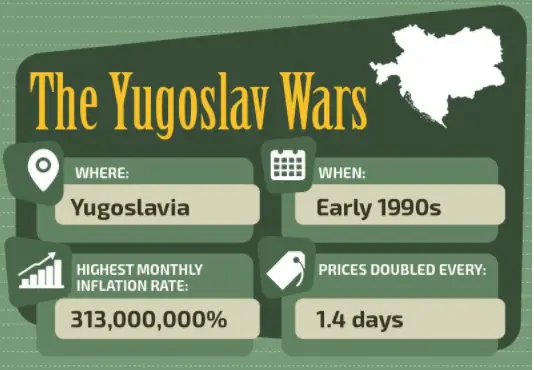6 Eerie Instances where Rampant Inflation Decimated Economies Beyond Recognition
The phenomenon of inflation is a common occurrence in economies worldwide, often viewed as a natural component of a healthy economy. However, when inflation spirals out of control, it can lead to disastrous consequences, decimating economies beyond recognition. This article will delve into 6 instances where rampant inflation has led to economic devastation. Each case study will provide an in-depth analysis of the causes, consequences, and potential solutions to hyperinflation, offering a comprehensive understanding of this economic anomaly. By exploring these instances, we hope to shed light on the dangers of unchecked inflation and the importance of sound economic policies.
1. Post-World War I Germany

The first instance of rampant inflation decimating an economy beyond recognition is post-World War I Germany. The Treaty of Versailles imposed heavy reparations on Germany, leading to an economic crisis. The government resorted to printing more money to meet its obligations, triggering hyperinflation. The German mark became virtually worthless, and the economy collapsed. This period of economic turmoil paved the way for the rise of Adolf Hitler and the Nazi Party, showing how economic instability can lead to political upheaval.
2. Zimbabwe in the 2000s

Zimbabwe in the 2000s provides another chilling example of rampant inflation. Under Robert Mugabe's regime, the government pursued aggressive land reform policies that disrupted the agricultural sector. As food production plummeted, the government printed more money to pay its debts, triggering hyperinflation. At its peak, Zimbabwe's inflation rate reached an astronomical 89.7 sextillion percent per month. The economy was decimated, and the Zimbabwean dollar became worthless, leading to widespread poverty and economic instability.
3. Venezuela's Ongoing Crisis

Venezuela's ongoing economic crisis is another stark example of how rampant inflation can wreak havoc on an economy. The country's economy, heavily reliant on oil exports, was hit hard by the fall in oil prices in 2014. The government responded by printing more money, leading to hyperinflation. The Venezuelan bolivar has become virtually worthless, and the economy is in ruins, with widespread shortages of food and medicine. This crisis underscores the dangers of an overreliance on a single export and the need for economic diversification.
4. Yugoslavia in the 1990s

The case of Yugoslavia in the 1990s is another example of how rampant inflation can lead to economic devastation. The country, embroiled in a brutal civil war, saw its economy collapse as the government printed money to fund the war effort. Hyperinflation ensued, with the Yugoslav dinar becoming worthless. The economy was decimated, and the country eventually broke up into several smaller states. This instance highlights the dangers of financing war through money printing and the need for peace and stability for economic prosperity.
5. Hungary after World War II

Hungary after World War II provides another example of rampant inflation leading to economic devastation. The country, burdened with war reparations and a destroyed infrastructure, saw its economy collapse as the government printed money to meet its obligations. Hyperinflation ensued, with the Hungarian pengő becoming virtually worthless. The economy was decimated, leading to widespread poverty and economic instability. This case underscores the importance of sound economic policies in post-war reconstruction.
6. Argentina's Recurring Crises

Argentina provides a unique example of a country that has experienced recurring bouts of rampant inflation. From the 1970s to the present day, the country has seen several instances of hyperinflation, each time leading to economic devastation. The Argentine peso has repeatedly become virtually worthless, and the economy has been decimated multiple times. These recurring crises underscore the importance of maintaining fiscal discipline and pursuing sound economic policies.
These seven instances of rampant inflation decimating economies beyond recognition underscore the dangers of unchecked inflation. They highlight the importance of sound economic policies, fiscal discipline, economic diversification, and peace and stability for economic prosperity. While inflation is a natural component of a healthy economy, when it spirals out of control, it can lead to disastrous consequences. It is our hope that by exploring these instances, we can learn from the past and avoid similar economic catastrophes in the future.







